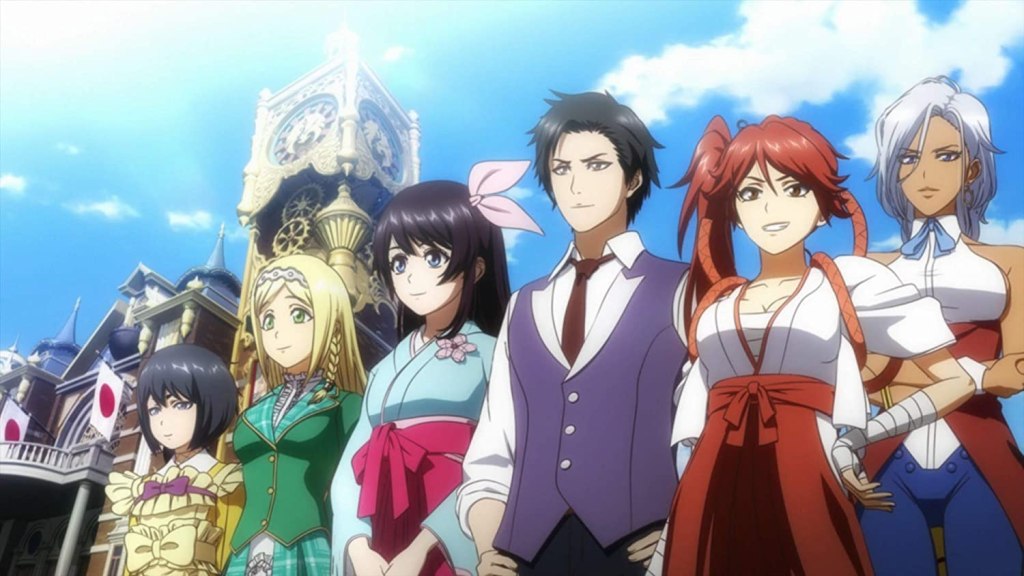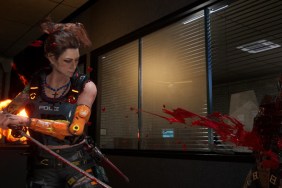Full disclosure- I’ve never played an entry into the Sakura Wars franchise before. Considering that there has only been one game released in English outside of this one, that’s no big surprise. However, I had at least heard of it before getting set to play the quasi-reboot of the franchise, which should say something about how beloved this series is.
You play as Kamiyama, a former naval captain who has been tasked with helping the Flower Division, who fight demons whilst also acting in shows the theatre puts on. The theatre is in pretty dire shape when you get there, so it’s up to you to bring the team together and try to win the Combat Revue World Games. One thing that is immediately apparent that Sakura Wars does well is replicating the anime feel. Not only does it look incredible in both its 2D and 3D sections, but it also has a fantastic theme song and interludes between episodes. You even get teases of what’s coming in each episode which is a really neat touch.
It probably doesn’t need to be said, but the story and characters really are the focus of Sakura Wars, not the gameplay. For some people that may be a bit of a turn-off, but Sakura Wars does it so well and gets you so invested in all of the characters and their arcs that it’s hard to fault it for sticking to its guns.
Sakura Wars is a mixture of conversation management, exploring your environments, and some light action gameplay. Each part of the gameplay interacts with the other, so maintaining relationships is an important factor in doing your best during the combat sections. If you’ve heard of Sakura Wars, you’ve probably heard the term dating sim used for it. Although there are certainly a lot of elements that are dating sim-esque, I feel like that sort of downplays a lot of what the game does in talking to all sorts of characters. You’re not trying to date every character after all!
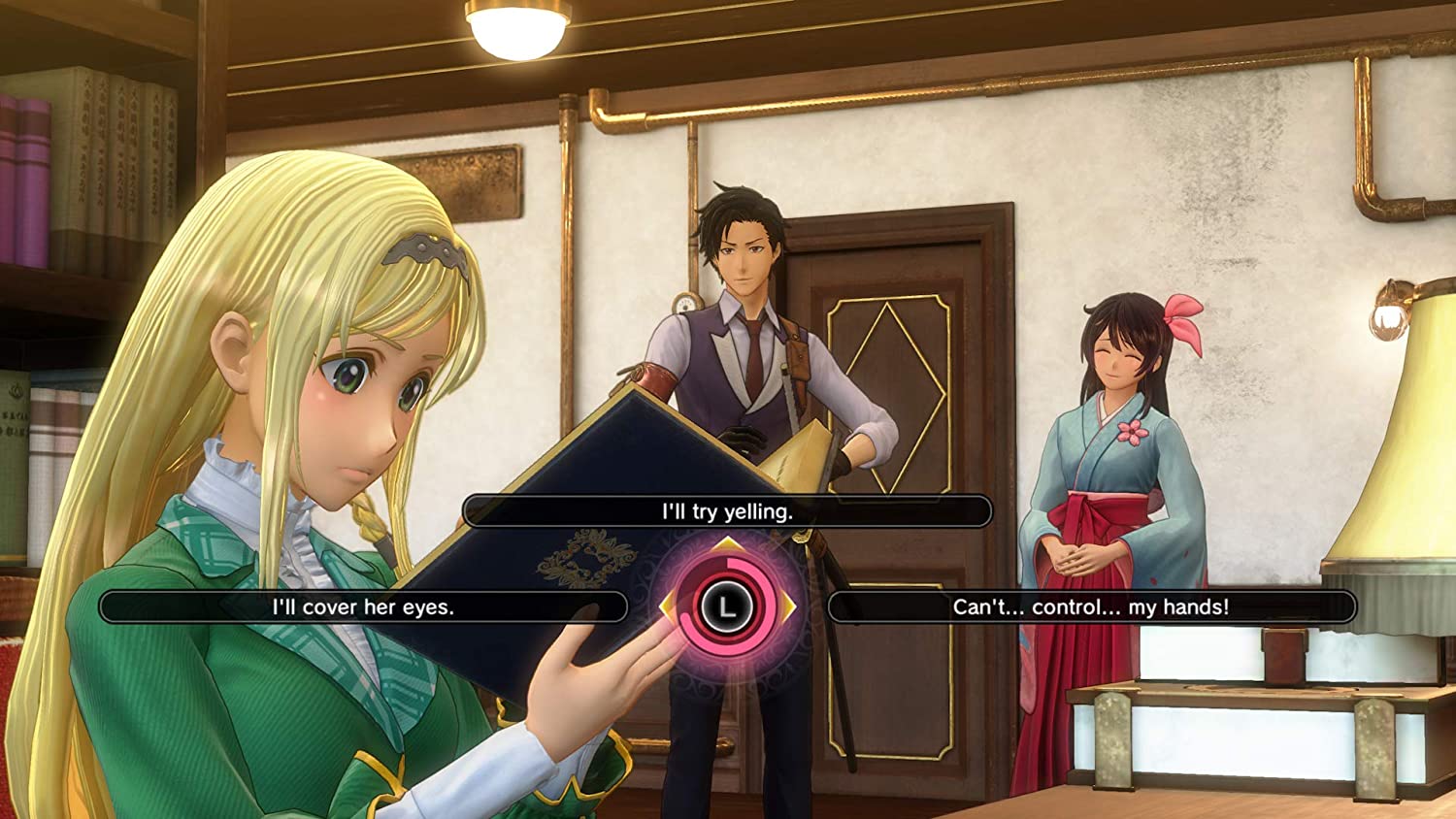
By far the best part of the gameplay experience is talking to other characters. Not only are they all incredibly entertaining, but the LIPS system makes it really interesting. Like other games that have you talking to characters, you have a limited amount of time to choose your dialogue options, and they all can have positive or negative effects on your relationships with your team. However, what sets Sakura Wars apart is that I never felt like it was immediately obvious which conversation choice would suit each character. Trying to be overly optimistic will work with Sakura, but it won’t work for Claris, and learning how each character responds is all part of the fun.
That can also work the other way around though, as it can sometimes be a bit unclear what exactly Kamiyama is going to say or do. Early in the game, there was an option that seemed harmless but ended with him trying to jokingly grope one of the characters, which made Sakura particularly displeased. Luckily it all plays into how genuinely funny the game can be, but when your main gameplay mechanic hinges on dialogue, it needs to be as clear as possible what option does what. There are also a few other subsections of the LIPS system, such as having to choose how intense you’ll be in a conversation or selecting items in a scene to discuss. Essentially, any time where you’re talking to a character is really when Sakura Wars shines.
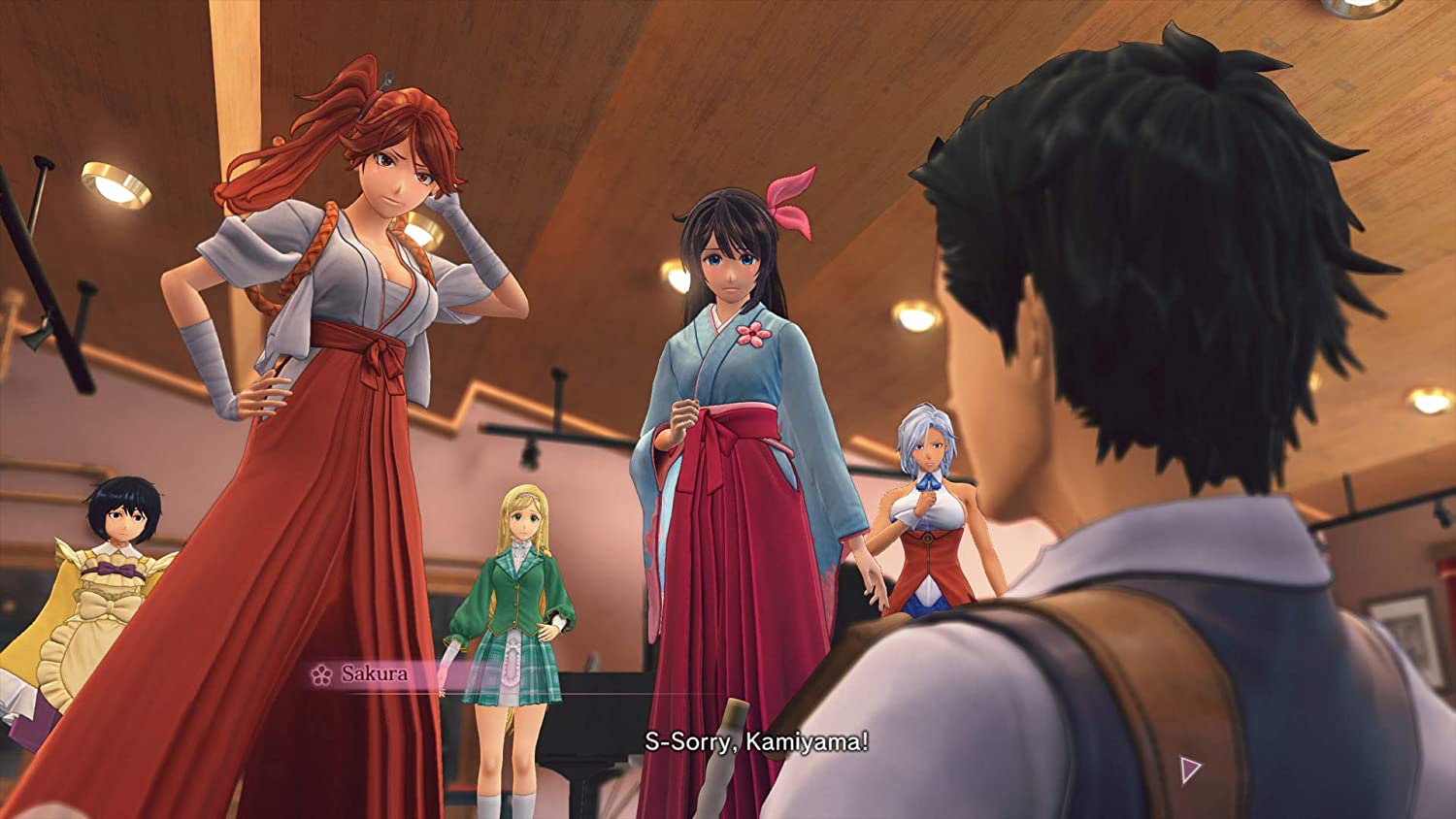
When you finally decide which girl you want to pursue, the “dating-sim” elements of Sakura Wars come out in full force. You get special moments where you interact one on one with one of the girls and help them through a tough time. These moments are genuinely really unique and interesting, but can sometimes feel a little bit weird to watch. It’s a cultural thing, but I couldn’t help feel a tiny bit awkward every now and then.
Sakura Wars can’t just be about dialogue and characters though. When you’re not walking around environments and deciding which girl is the best girl, you’ll be piloting mecha-esque Spiricle Strikes for some small combat encounters. These sequences have you swapping between Kamiyama and the rest of the team in order to take on demons. It’s very simple gameplay that doesn’t really move beyond just being okay, although there were times when it reminded me somewhat of a Dynasty Warriors title. Besides timing your dodges for a slowdown mechanic, it’s very basic stuff mechanics-wise. The most unique thing about it is that the better you do in combat, the higher your team morale is, which actually ties in quite well with the game’s themes. The simplicity doesn’t mean it isn’t fun from time to time, but I found myself mostly just wanting to get back to the dialogue and character moments.
What you need to remember is that Sakura Wars isn’t really about the combat sections, and it’s much better to think of them as dramatic breaks from the rest of the game. It’s serviceable and can even be fun at times, but it’s definitely not the main attraction by any stretch of the imagination.
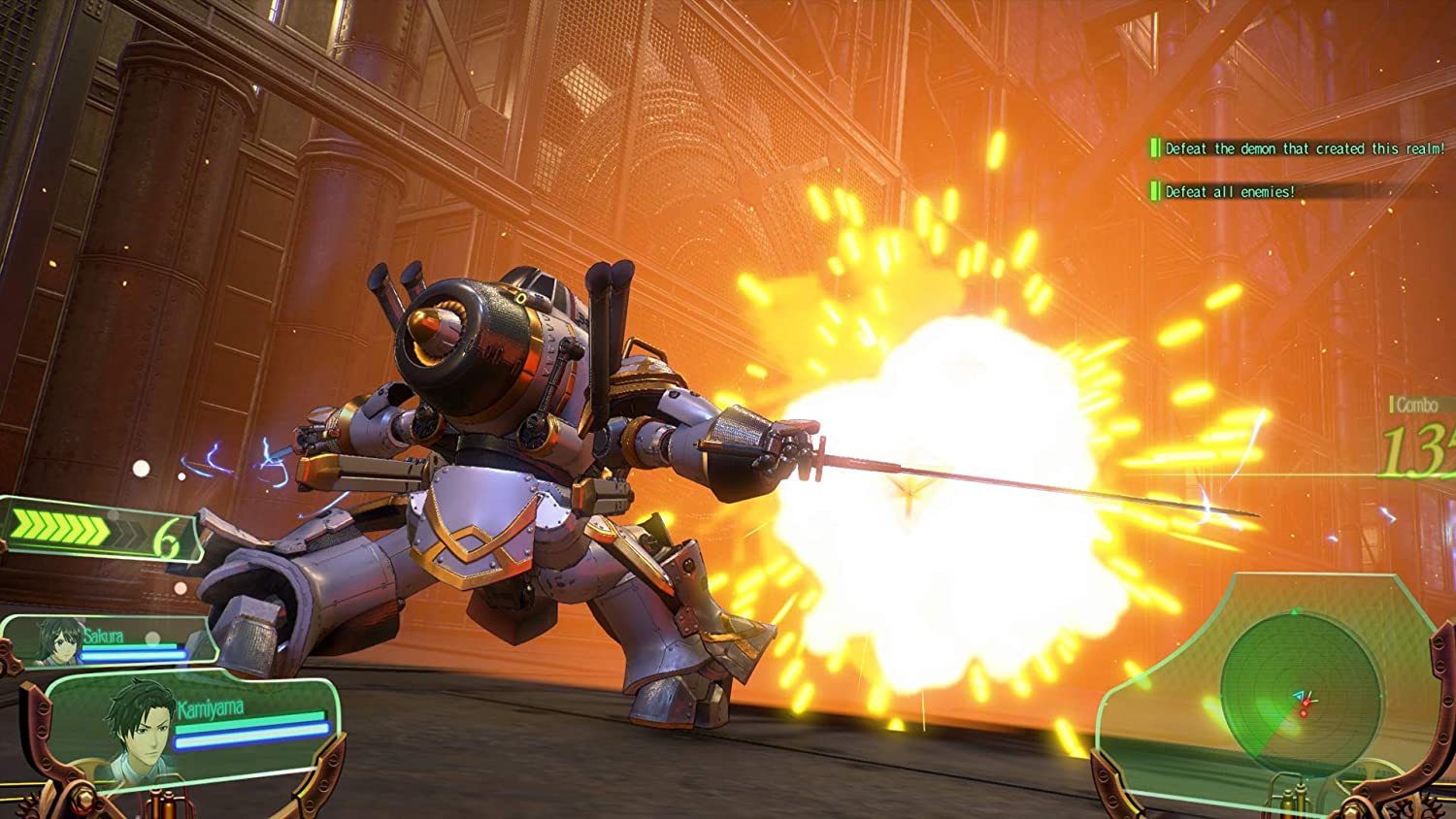
Sakura Wars offers quite a lot of replayability in the form of choosing which character you want to focus on trying to date. There are multiple different endings, as well as different conversations to be had throughout the game. I found the characters likable enough that I genuinely did want to see what happens in each different scenario. It makes the relatively short length a lot more palatable, although your mileage will vary depending on how much your first playthrough entertains you. There are also bromides to collect, but as a first-timer to the series, I didn’t really find myself too invested in that element.
Put simply, Sakura Wars isn’t going to be for everyone. It’s oddly paced, character-focused, and anime-inspired, but that’s also some of the best things about it. If even a tiny bit of you is interested in that description, there’s a chance you’ll really enjoy the craziness that Sakura Wars puts on the table.
Sakura Wars review code provided by publisher. Reviewed on PlayStation 4. For more information on scoring, please read our Review Policy.
-
Anime-esque presentation is impressive
-
Anything to do with talking is a highlight
-
Genuinely charming and funny
-
Combat is uninspired
-
Occasionally awkward moments
-
Definitely an acquired taste
